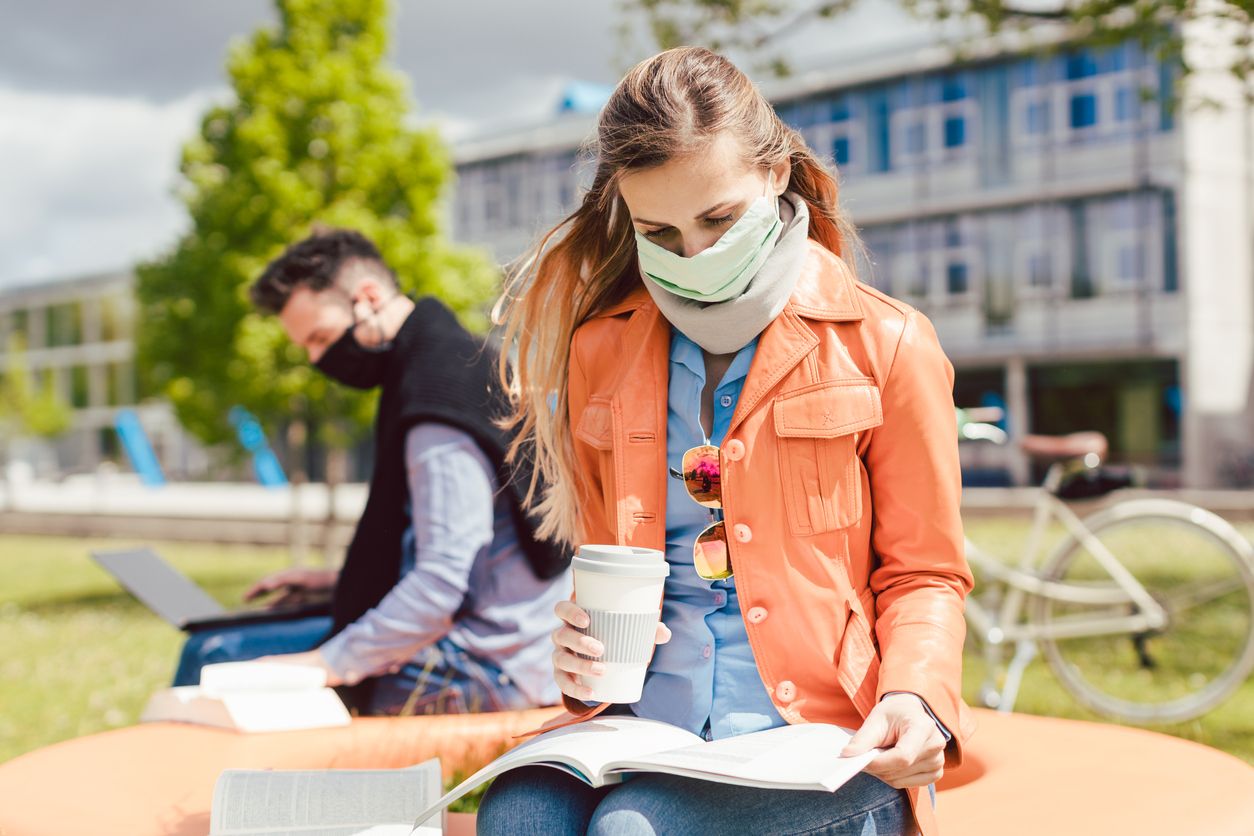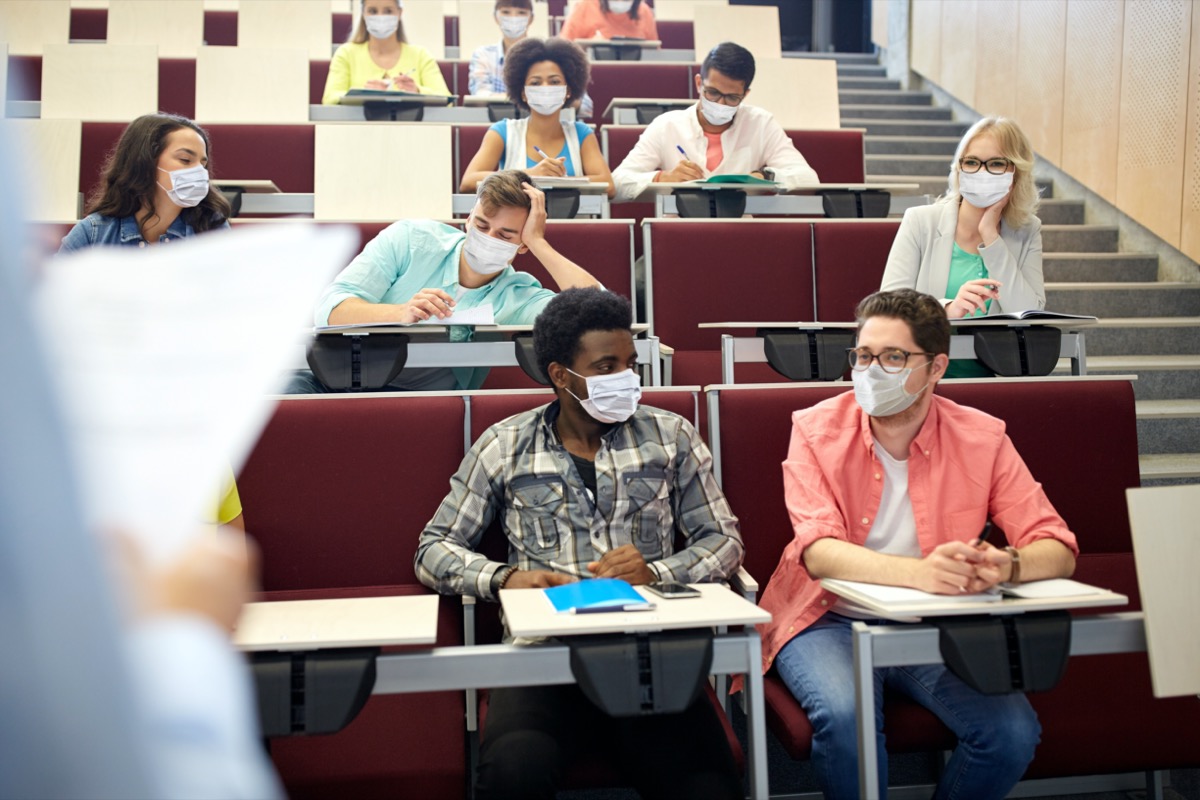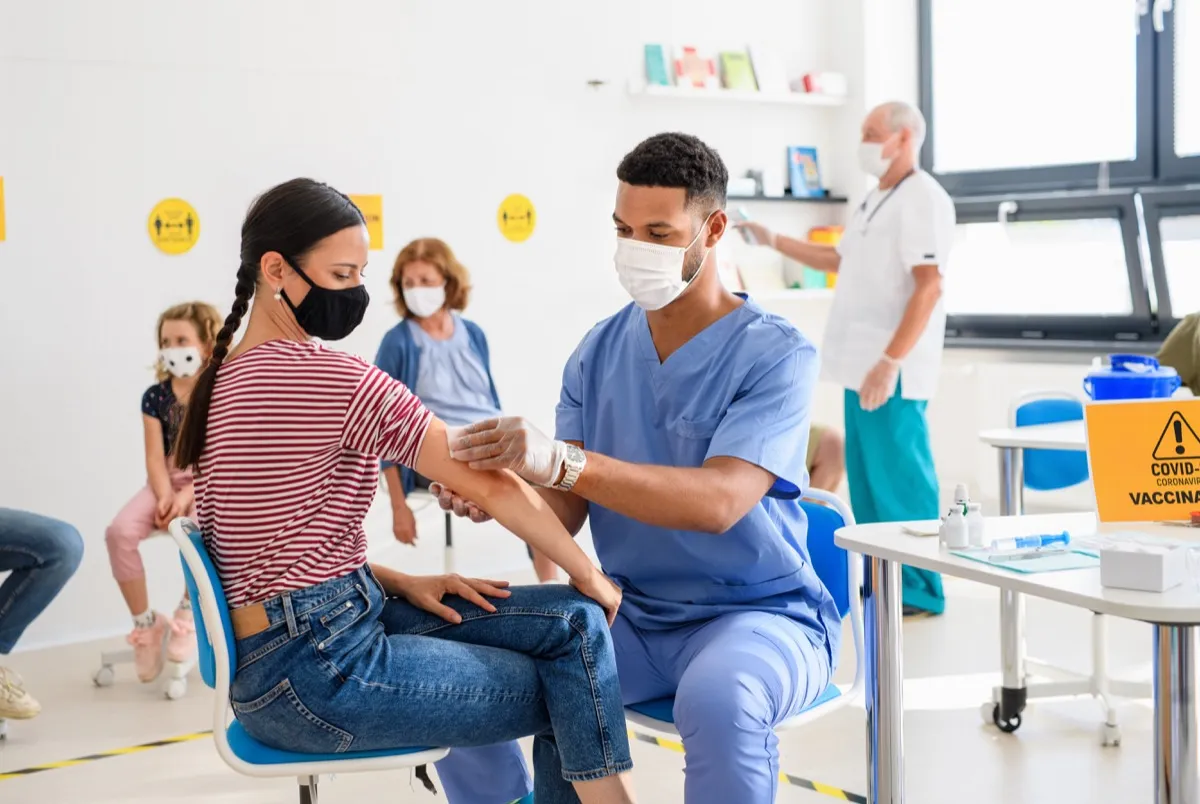Public health data over the past year has shown that the tight living quarters and crowded classroom conditions of university and college campuses can make them veritable hotbeds for coronavirus transmission, with many administrators choosing to close down in-person learning and empty dorms over the past academic year. In order to avoid further outbreaks, vaccinations could be mandatory—and legal experts say universities would be in their right to do so. Read on to find out more, and for advice on how to prepare for your shot, check out The 2 Things You Need to Do Before Getting Vaccinated, Study Says. Requiring returning students to get vaccinated against a highly contagious virus such as COVID-19 is something colleges have legally done in the past, with diseases like meningitis and measles. “Under everything that we’ve seen, and the guidance from agencies like the Equal Employment Opportunity Commission [EEOC] and the Department of Education, it’s been stated that just like how [colleges] can require other vaccines like meningitis and measles and hepatitis for incoming students, that they could require this vaccine as well,” attorney Renee Mattei Myers told CNBC’s Make It. “The EEOC’s guidance that came out in December made it clear and paved the way to say that employers can mandate vaccines and that this isn’t considered a medical examination, which is prohibited by the Americans with Disabilities Act [ADA].” And for more on where you may be able to get your shot soon, check out If You Live in These States, You Can Get Vaccinated at Walgreens Next Week. Legal experts also point out that students would still be able to hold off on getting immunized based on religious or medical grounds. But similarly to exemptions at places of employment that require vaccinations, any inoculation requirement clearly would not apply to students who choose to continue to study off-campus.ae0fcc31ae342fd3a1346ebb1f342fcb “The current policy is usually if there is an outbreak, for example, of measles, and a student has an exemption for philosophical or religious reasons, that in the event of a measles outbreak, all of the exempted students might be subject to exclusion from the campus or even quarantined,” Kevin Welner, PhD, professor at the University of Colorado Boulder School of Education, told Make It. Of course, the novel coronavirus pandemic clearly legally constitutes an outbreak. “So if those typical vaccination policies were applied to the COVID-19 vaccine, then even those provisions for waivers and exemptions wouldn’t currently allow for attendance without the vaccine,” Welner said. And for more on the latest news about the vaccine, read up on why If You Have These Vaccine Side Effects, Don’t Get Another Shot, CDC Says. The idea of receiving a COVID vaccine may be somewhat of a polarizing one for the overall population, but college students appear to be much more supportive of them. A recent survey conducted by research group College Pulse found that 71 percent of students agreed that colleges and universities had the right to make coronavirus immunizations a requirement for anyone headed back to school, with 19 percent disagreeing with the view and 10 percent replying that they were unsure. “Our recent survey on vaccines shows students’ strong support for requiring vaccinations before returning to campus,” Anne Schwichtenberg, director of research at College Pulse, told Make It. “Students are eager to resume their normal on-campus routines, and while there is some hesitation about efficacy and safety associated with the vaccine, especially for students of color, a plurality of students see the vaccine as the quickest path back to normalcy.” And for more regular COVID updates, sign up for our daily newsletter. Besides strong support from students and administrators, the actual practice of getting doses administered might be more difficult based on the sheer availability of the coveted vaccine as many states continue to struggle with supplies and distribution. “Students are coming from so many different places and the vaccine may be readily available in a smaller state like Kentucky, but here in Pennsylvania, for instance, it’s still really difficult to get that vaccine,” Mattei Myers told Make It. “I think the best thing you could do is have [the vaccine] available and pay for it. Make it as easy as possible for these individuals and students to get vaccinated.” And for more on what you should be avoiding after you get your shots, check out Dr. Fauci Says Doing This After Getting Vaccinated Is a Huge Mistake.



